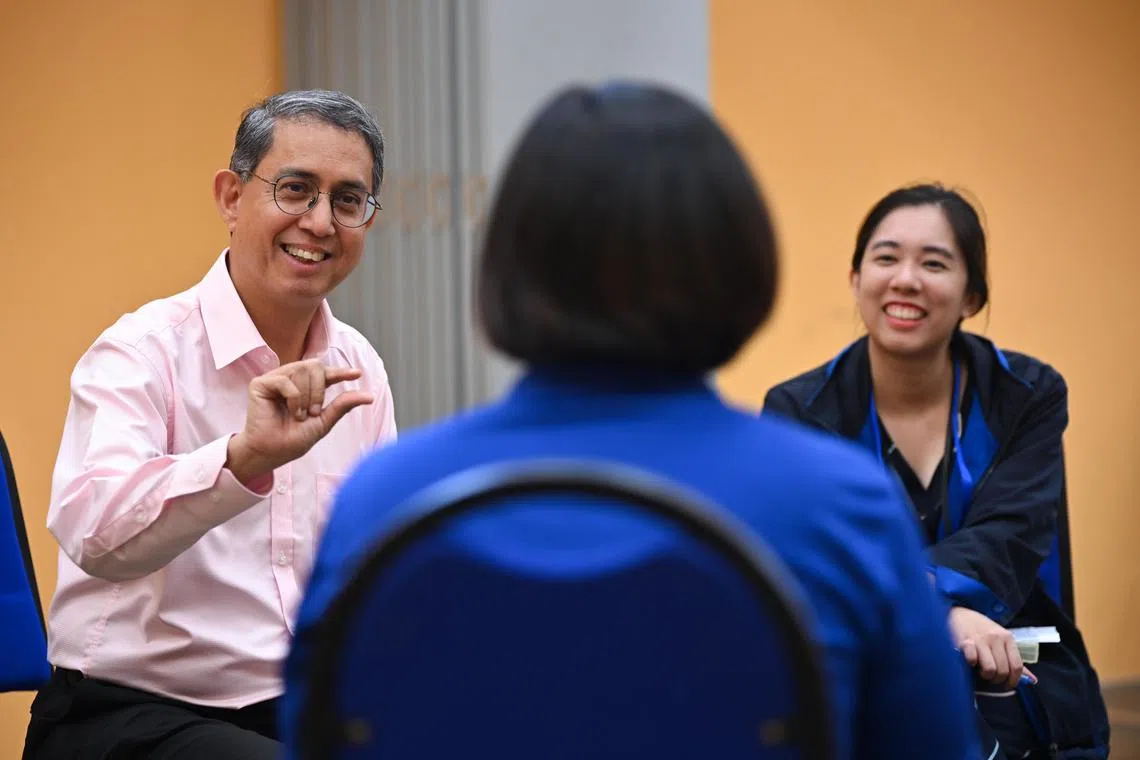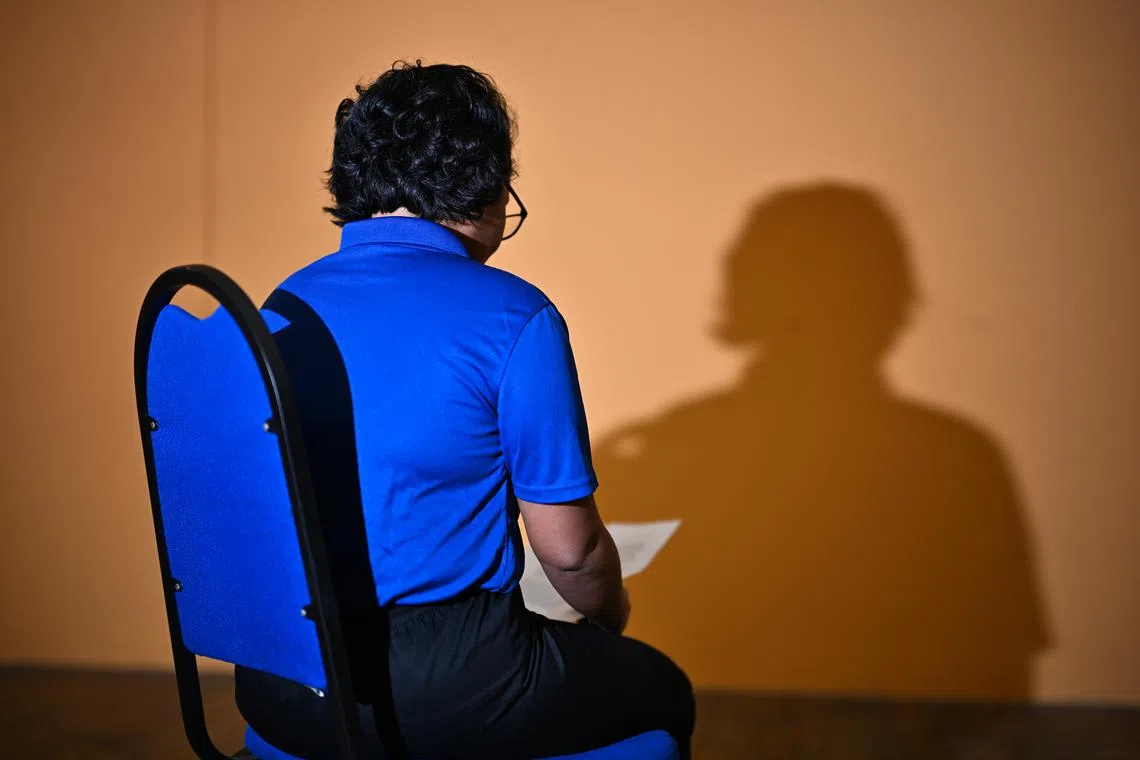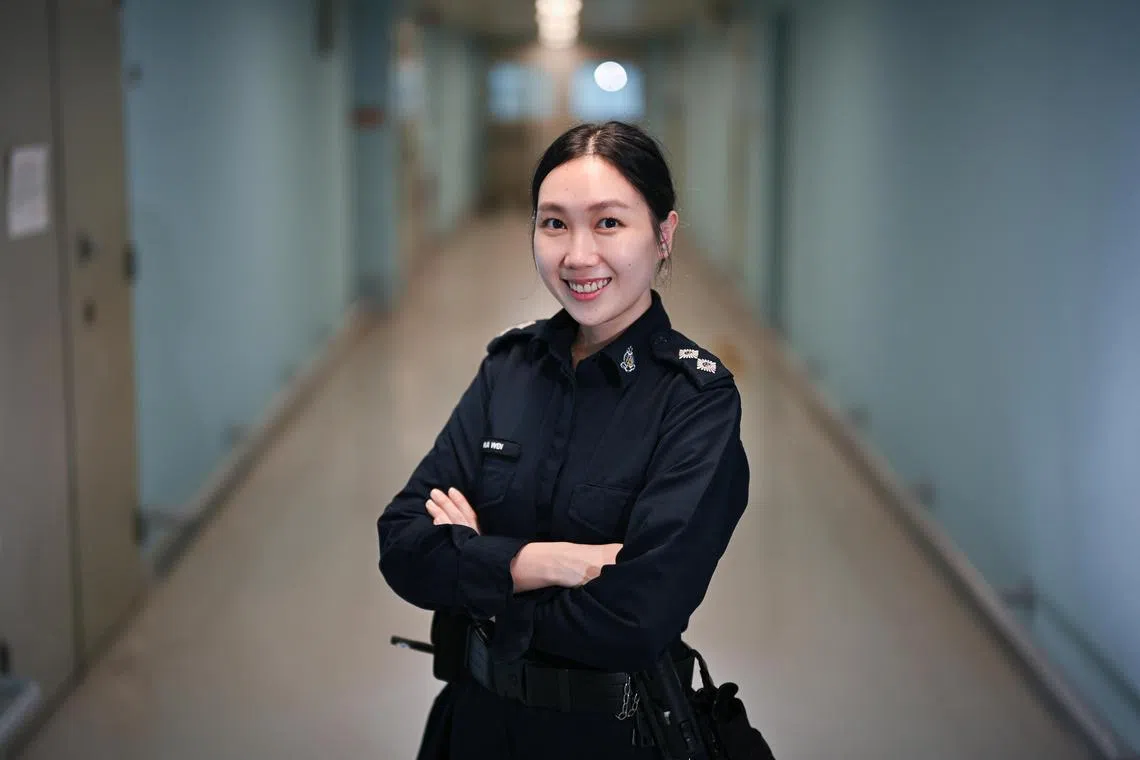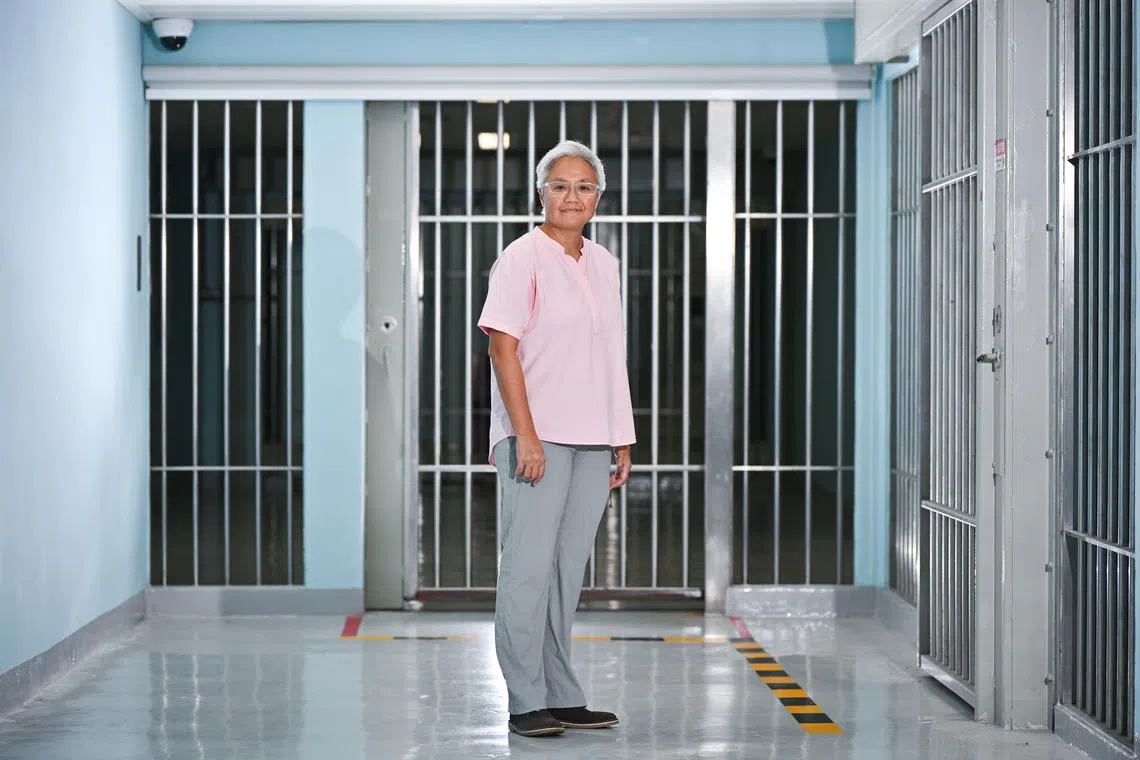Rehabilitation programmes for women offenders help drive down two-year recidivism rate
Sign up now: Get ST's newsletters delivered to your inbox

Minister of State for Home Affairs Muhammad Faishal Ibrahim (left) attributed the fall in recidivism rate to the support women offenders are receiving while incarcerated.
ST PHOTO: LIM YAOHUI
SINGAPORE – A convicted drug user and a single mother of four children, Sara (not her real name) found it hard in the past to steer clear of crime after her release back into society.
The 38-year-old, who is currently serving a fourth stint as a Drug Rehabilitation Centre inmate, said she often felt alone while struggling with the pressures of being a mother to her girls and a daughter to her elderly parents.
She did not know how to cope, which led to angry outbursts.
“As a mother, I worry if my children are well taken care of. I worry if they’re mixing with bad company outside. I also worry about my ailing parents.
“I think about all these things because I can’t be there for them,” she said in an interview arranged by the Singapore Prison Service (SPS).
Sara is one of more than 300 women offenders who are being rehabilitated through programmes introduced specifically for them.
These were rolled out from 2016 after SPS found that women offenders faced different challenges due to the diverse roles they play.
Some of them had adverse experiences, including abuse, related to these varied roles.
As a result, women offenders needed support in areas like mothering, trauma, mental health and perceived negative self-worth.
Minister of State for Home Affairs Muhammad Faishal Ibrahim said one outcome of the gender-specific initiatives is that the proportion of women offenders returning to crime within two years of their release has been on the decline.
SPS figures show the two-year recidivism rate for women offenders dropped from 20.7 per cent for the 2017 release cohort to 15.3 per cent for the 2021 release cohort.

Drug Rehabilitation Centre inmate Sara (not her real name) is a peer supporter helping two inmates.
ST PHOTO: LIM YAOHUI
Associate Professor Faishal attributed the fall to the support women offenders are receiving while incarcerated.
“I’m happy that such efforts of all various (support) groups have resulted in a very positive outcome in terms of lower recidivism rate for the female inmates,” he said during a visit on Aug 5 to Changi Prison Institution, where women offenders are housed.
During the visit, he observed women offenders taking part in a psychology-based correctional programme with counsellors.
Senior correctional officer Gan Jia Wen said women offenders have specific counselling needs.
“Unlike male inmates, who don’t normally talk about their problems, female inmates are more expressive and relational. They tend to share during peer support settings or with cell mates,” added Ms Gan.
The senior correctional officer is trained to recognise that women offenders typically have a history of abuse and trauma, resulting in higher incidence of mental illnesses and substance abuse.
The women offenders may also have been in unhealthy relationships with their partners, and received poor family support and faced economic difficulties.
Ms Gan said women offenders are more likely than their male counterparts to take drugs when they are unable to deal with their situation outside of prison.

Senior correctional officer Gan Jia Wen is trained and equipped with women-specific knowledge and engagement skills.
ST PHOTO: LIM YAOHUI
In prison, the women take part in a psychological-based correctional programme specifically meant for them.
SPS said the approach allows underlying issues and needs to be brought out and addressed, leading to more sustainable behavioural changes – resulting in higher chances of successful rehabilitation and reduced impact from incarceration on their families.
A separate initiative, Empowering Mothers Programme, was in part shaped by data gathered by registered charity Women In Recovery Association (Wira) in 2022 involving a group of incarcerated mothers in a focus group discussion.
Wira researcher Tan Ee Lyn said women drug offenders face unique challenges when they are released from prison. For example, they may be overwhelmed by the need to care for their children and secure jobs.
“We need to be extremely familiar with and sensitive to female inmates’ needs and concerns,” she said, adding that inmates have recounted their trauma from past abuse.
They have also shared their feelings of helplessness from not being there for their children, and worries that they may have a relapse.

Dr Tan Ee Lyn is a researcher at Women In Recovery Association, a registered charity offering services to female drug offenders.
ST PHOTO: LIM YAOHUI
Sara is determined to make this her last stint behind bars. She is currently serving a 36-month sentence for drug abuse.
Among other things, she has decided to become a peer supporter, to help a sick cell mate with her daily chores.
“Part of the change I’m going through is the result of the courses I have attended, as well as seeing a cell mate deal with breast cancer,” she said.
She added that she wants to pay it forward because of the support she has been receiving to help her in her recovery and rehabilitation.
“I have learnt to be more patient and maintain a calm outlook from helping my sick cell mate,” said Sara. “I’m now a peer supporter for two inmates.”
Correction note: In an earlier version of this story, it was stated that the Singapore Prison Service psychological-based correctional programme was shaped in part by data gathered by registered charity Wira. It should be the Empowering Mothers Programme. We are sorry for the error.



